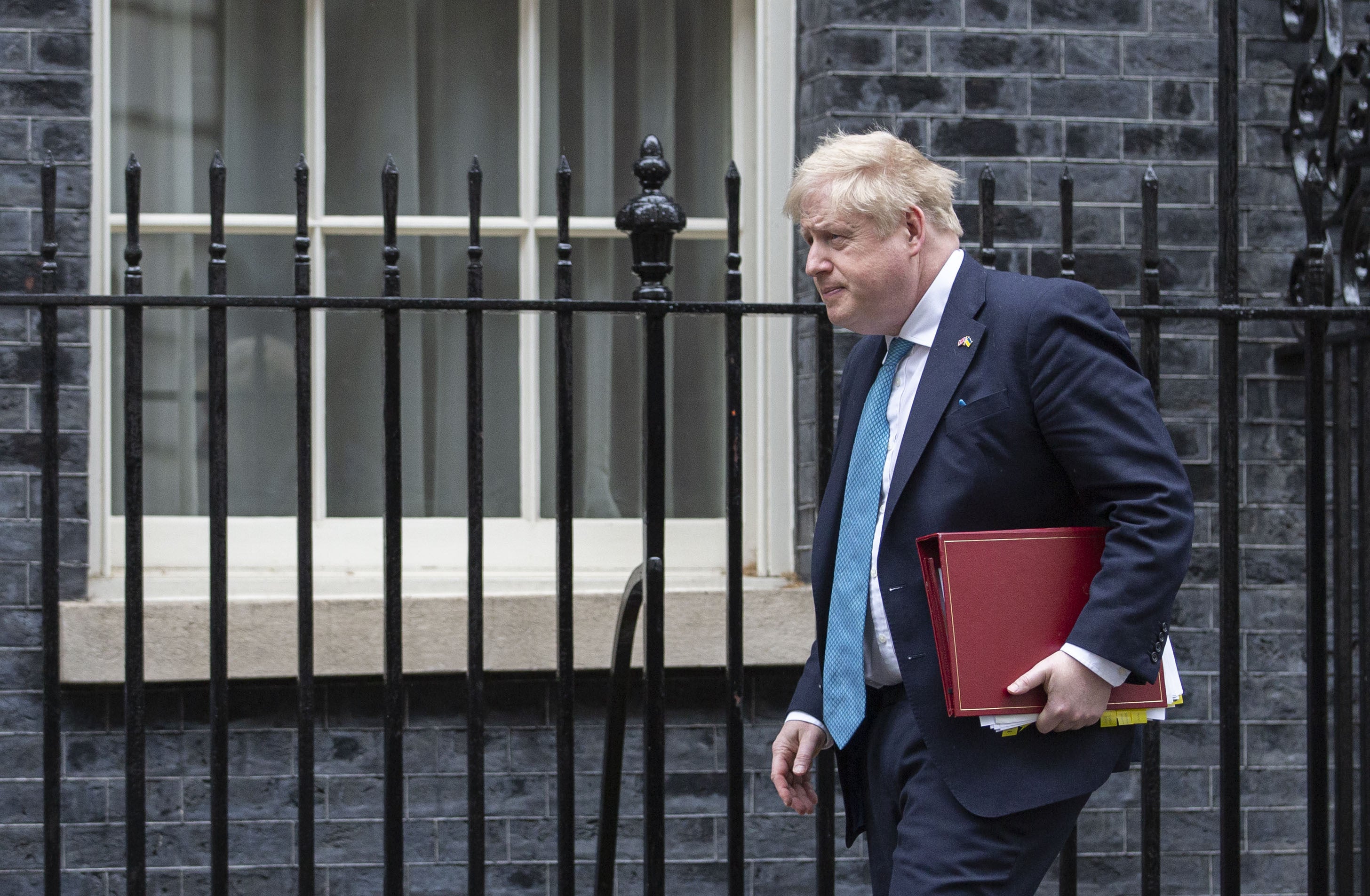Why Boris Johnson was left red-faced by the UK’s failure to sanction Putin’s allies
The UK’s feeble efforts can be traced back to its ‘reputation as the world’s money laundering capital’, writes Rob Merrick


It was not supposed to be like this, when Boris Johnson insisted he is “leading the world” in sanctions on Russia and vowed Vladimir Putin’s cronies will have “nowhere to hide your ill-gotten gains”.
Those promises are badly tarnished as the UK languishes far behind the EU and US in targeting the powerful oligarchs who are perhaps the best hope for forcing out the war-mongering Russian president.
Only a small number of (mostly obscure) cronies have been sanctioned so far – compared with 25 by Brussels – the members of the Russian parliament continue to escape and there is no sign of a promised wider list of targets.
Roman Abramovich is being allowed to flog off Chelsea Football Club before facing sanctions, it appears, despite a leaked Home Office document flagging his links to “the Russian state” and “corrupt activities”.
Peter Ricketts, a former head of the Foreign Office, is among those watching in disbelief, warning: “The risk is that ‘nowhere to hide’ becomes ‘plenty of time to hide’.”
Bill Browder, the campaigner against Russian corruption, said: “This is looking worse and worse for the British government. They need to act fast or their reputation as the world’s money laundering capital will be set in stone forever.”
So what has gone wrong, in contrast to the wider sanctions which have seen Russia and its companies banned from raising funds in the UK and some of its banks shut out of the Swift international payments system?
An effort is under way in government to blame a favourite target – lefty lawyers, in particular amendments secured to 2017 sanctions legislation to impose tests before individuals can be designated.
But these were accepted by ministers and, experts say, place no further obstacles in the way of sanctions than apply in the EU. A red herring, it seems.
The finger is also pointed at budget cuts, both at the National Crime Agency and within the Foreign Office, which appears to lack the expertise to do the legal work.
But perhaps the biggest reason is the deeply rooted mindset that allowed illicit Russian wealth to become so embedded in “Londongrad”, as our capital city is dubbed.
Think back to the intelligence committee’s 2020 “Russia report” into dirty money – and remember how Mr Johnson first suppressed it and then rejected its recommendations.
For years, the Conservatives have promised to act on oligarchs secretly buying property, through rogue companies so easily set up, and have done absolutely nothing.
Even now, before a U-turn, they planned for an 18-month breathing space before the property ownership register is enforced – with no identify verification for directors of firms registered at Companies House.
The government has spent years neglecting economic crime, while running scared of legal threats – and seems unable to change course quickly, despite the horrors of Ukraine.






Join our commenting forum
Join thought-provoking conversations, follow other Independent readers and see their replies
Comments